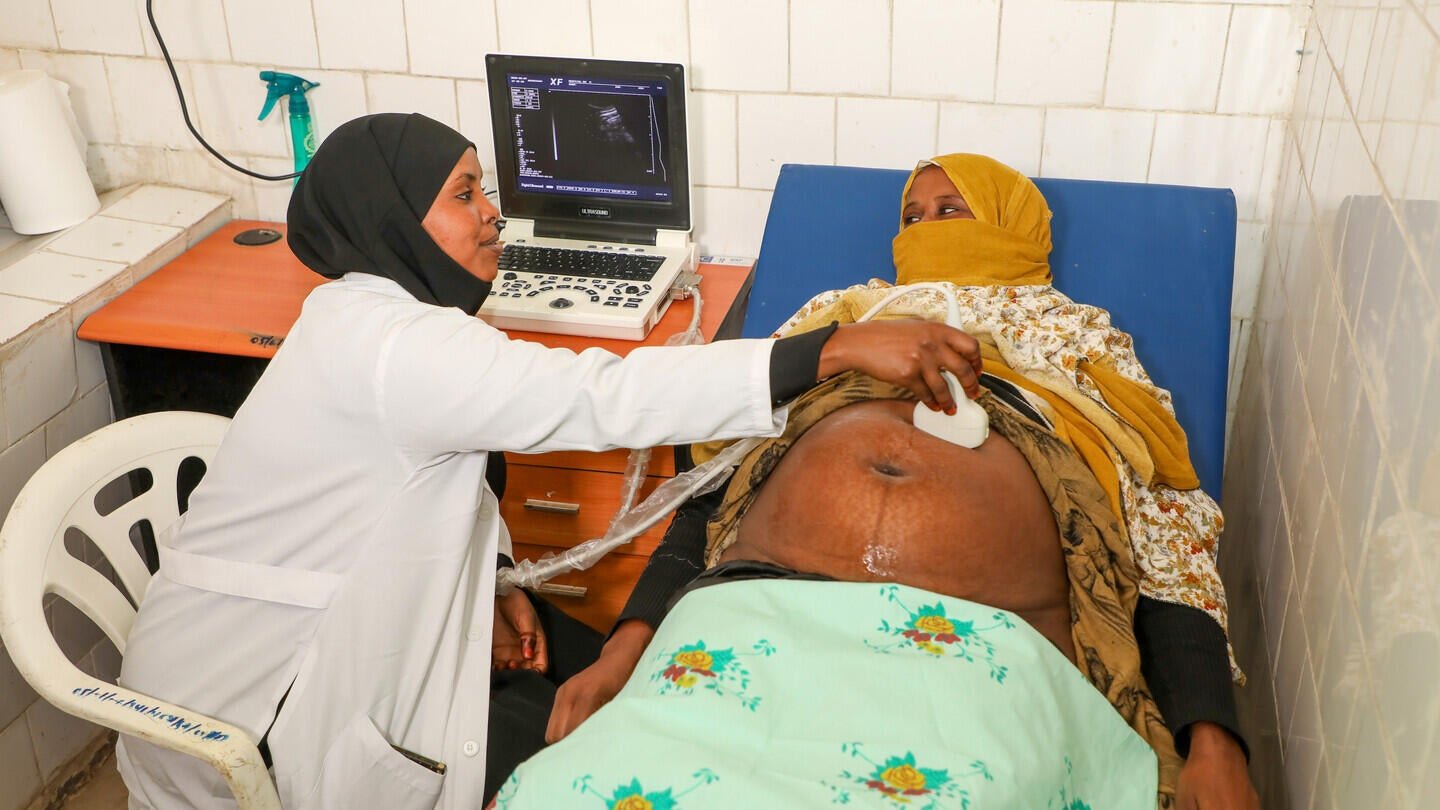Isra Omar joined the Awbare Health Center three years ago as a maternal and child health officer, taking on the responsibility of managing deliveries and providing antenatal and postnatal care. The Awbare District where the health center is located has long struggled with one of the lowest antenatal care seeking rates in the country. “Being a midwife in Awbare has never been easy,” Isra says. “You can imagine six or seven pregnant mothers arriving on any single day with only a few skilled birth attendants or doctors on duty.”
The Awbare Health Center was struggling in terms of infrastructure, staffing, medical supplies, and budget. Despite these challenges, the facility has been handling some of the most complicated delivery cases in the region, in addition to its routine health services. Isra recalls, “if a Caesarean section was needed, we would often lose babies or mothers because they wouldn't usually afford travelling to Jijiga [capital of Somali Region] to get the services.”
The high rates of home deliveries that used to be observed in the district had a lot to do with the overstretched maternity staff and inadequate supplies as much as the low awareness that existed among expectant mothers.
“At that time, many mothers with obstetric complications chose to remain at home rather than travel to higher-level hospitals because they couldn’t afford it,” Isra explains. “I remember some pregnant mothers who were referred from Awbare Health Center to the Karamara Hospital [in Jigjiga], 75 kilometers away, who died on the way because we simply couldn’t manage the serious pregnancy related complications here. Mothers would either die on the road or arrive at the hospitals in a dire condition.”
Thanks to the support from the Somali regional health bureau, the staffing at the Awbare Health Center gradually improved and the number of mothers seeking antenatal care increased due to the sustained awareness campaigns. An operating room was eventually built, enabling the center to perform obstetric surgeries to manage complicated pregnancies.
“Now things have dramatically improved,” Isra comments. “UNFPA supported us with health supplies, training, and catchment-based clinical mentorship. The health center can now provide both basic and comprehensive emergency obstetric and neonatal care. Our referral cases for mothers with obstetric complications has now dropped by 90 percent,” she adds.
Isra also acknowledges the pivotal role local community support is playing in the effort. “The Umulgargaar [mother-to-mother support group] is playing a key role in saving many mothers and their children by providing critical information to pregnant mothers on pregnancy and delivery, as well as food and other supplies before and after delivery,” she notes.
The capacity of the Awbare Health Center has greatly increased now to offer safe motherhood services, delivering renewed hope for healthier pregnancies and safer births.


